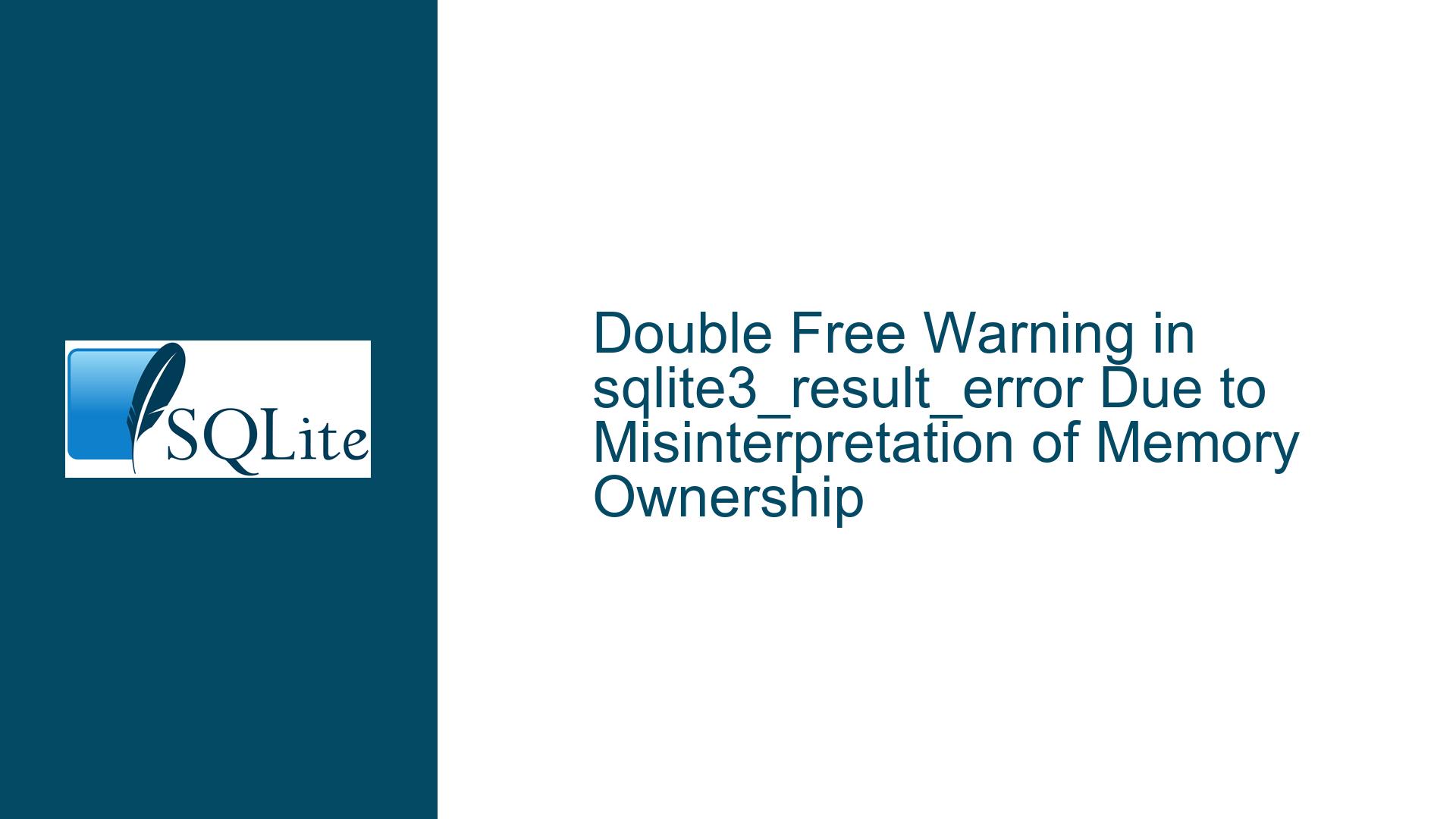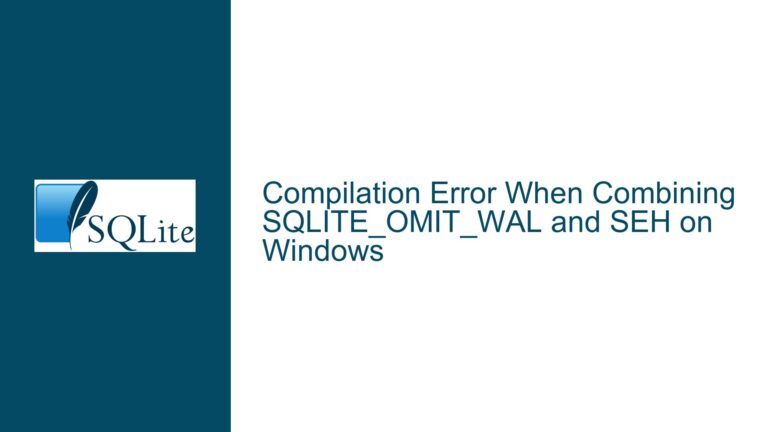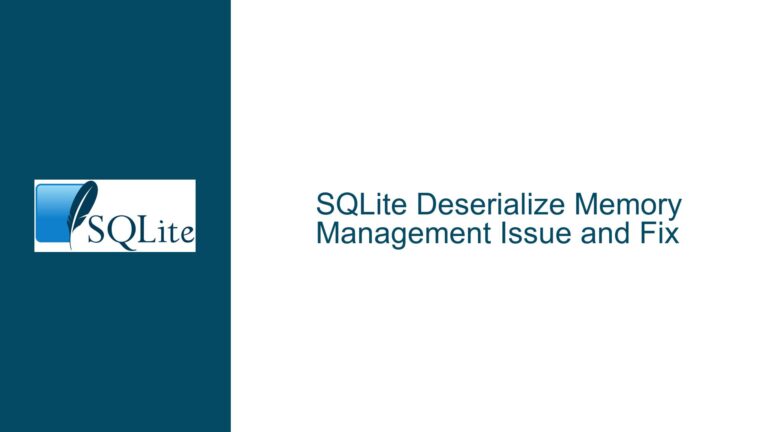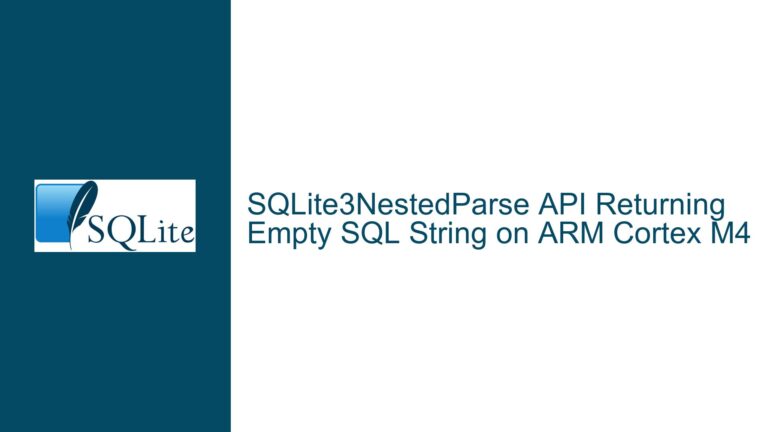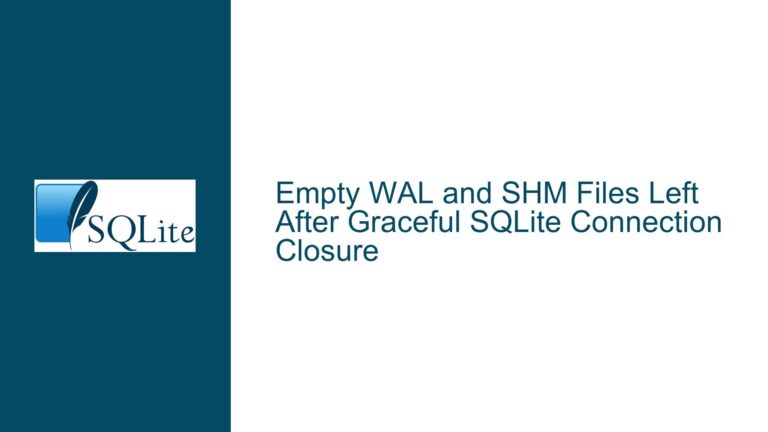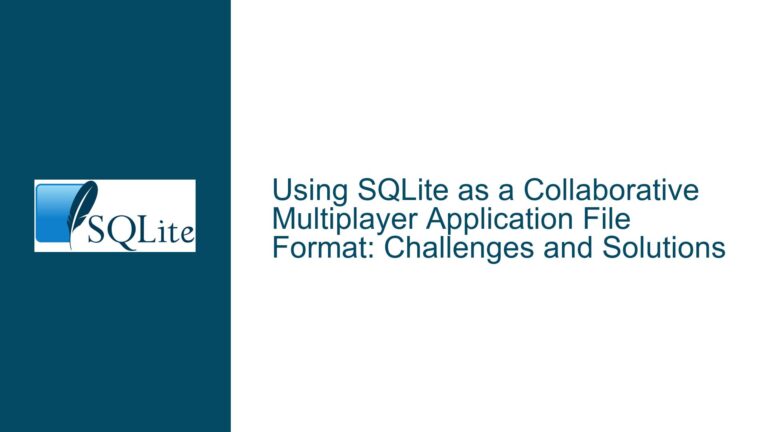Double Free Warning in sqlite3_result_error Due to Misinterpretation of Memory Ownership
Understanding the Double Free Warning in sqlite3_result_error
The core issue revolves around a reported double free warning in the SQLite library, specifically within the sqlite3_result_error function. This warning was flagged by a static code analysis tool (Coverity) during the analysis of the sqlite3InvalidFunction function, which is one of several functions in the SQLite codebase that utilize sqlite3_result_error. The warning suggests that the memory allocated for the error message string (zErr) is being freed twice: once inside sqlite3_result_error and again explicitly via sqlite3_free(zErr) in the calling function. This issue was reported in multiple places within the SQLite codebase, raising concerns about potential memory management flaws.
To fully understand the problem, we need to dissect the memory ownership model of sqlite3_result_error, the behavior of sqlite3_mprintf, and the implications of the const char* parameter in the function signature. Additionally, we must examine the internal implementation of sqlite3_result_error and its interaction with other SQLite functions like sqlite3VdbeMemSetStr, sqlite3DbFree, and sqlite3DbFreeNN. The confusion arises from the assumption that sqlite3_result_error takes ownership of the memory allocated for the error message, leading to the explicit call to sqlite3_free(zErr) in the calling function. However, this assumption is incorrect, as the function only makes a private copy of the error message and does not assume ownership of the original memory.
Misinterpretation of Memory Ownership in sqlite3_result_error
The root cause of the double free warning lies in the misinterpretation of memory ownership semantics in the sqlite3_result_error function. The function signature, void sqlite3_result_error(sqlite3_context*, const char*, int), includes a const char* parameter, which indicates that the function does not take ownership of the memory pointed to by the error message string. Instead, it creates a private copy of the string for internal use, allowing the caller to retain ownership and responsibility for freeing the memory.
The confusion arises from the interaction between sqlite3_result_error and the memory allocation function sqlite3_mprintf. The latter dynamically allocates memory for the error message string, and the caller is responsible for freeing this memory using sqlite3_free. However, the static code analysis tool incorrectly assumes that sqlite3_result_error also frees the memory, leading to the double free warning. This assumption is based on a misunderstanding of the function’s internal implementation and the memory ownership model.
To further complicate matters, the internal implementation of sqlite3_result_error involves a chain of function calls, including sqlite3VdbeMemSetStr, sqlite3DbFree, and sqlite3DbFreeNN. These functions are responsible for managing memory within the SQLite library, but they do not free the memory allocated by sqlite3_mprintf in the calling function. Instead, they operate on a private copy of the error message string, ensuring that the original memory remains under the caller’s control.
Resolving the Double Free Warning and Ensuring Correct Memory Management
To resolve the double free warning and ensure correct memory management, it is essential to clarify the memory ownership semantics of sqlite3_result_error and adjust the calling code accordingly. The following steps outline the troubleshooting process and the necessary fixes:
Review the Function Signature and Documentation: The first step is to carefully review the function signature and documentation for
sqlite3_result_error. Theconst char*parameter clearly indicates that the function does not take ownership of the memory, and the documentation explicitly states that the function makes a private copy of the error message. This information should be used to correct the misinterpretation of memory ownership.Analyze the Internal Implementation: The next step is to analyze the internal implementation of
sqlite3_result_errorand its interaction with other SQLite functions. This involves tracing the function calls fromsqlite3_result_errortosqlite3VdbeMemSetStr,sqlite3DbFree, andsqlite3DbFreeNNto confirm that these functions do not free the memory allocated bysqlite3_mprintf. This analysis should be documented to provide a clear understanding of the memory management behavior.Adjust the Calling Code: Based on the findings from the previous steps, the calling code should be adjusted to ensure that the memory allocated by
sqlite3_mprintfis freed only once. This involves removing the explicit call tosqlite3_free(zErr)in the calling function, as the memory is already managed by the caller and does not need to be freed again. This adjustment should be made in all functions where the double free warning was reported.Validate the Fixes: After making the necessary adjustments, the code should be re-analyzed using the static code analysis tool to confirm that the double free warning has been resolved. Additionally, the code should be tested to ensure that it behaves correctly and does not introduce any new memory management issues.
Document the Findings: Finally, the findings and fixes should be documented to provide a clear explanation of the issue and the steps taken to resolve it. This documentation should include a detailed description of the memory ownership model, the internal implementation of
sqlite3_result_error, and the adjustments made to the calling code. This documentation will serve as a reference for future maintenance and troubleshooting.
By following these steps, the double free warning can be resolved, and the memory management in the SQLite library can be ensured to be correct and efficient. This process highlights the importance of understanding memory ownership semantics and the need for careful analysis when working with complex codebases and static code analysis tools.
